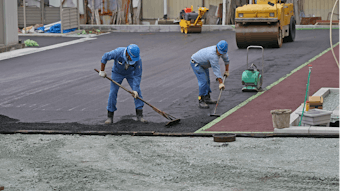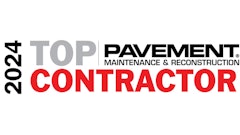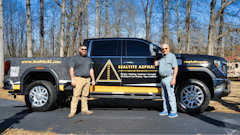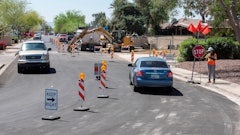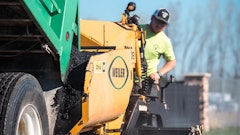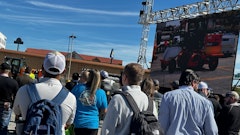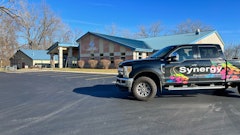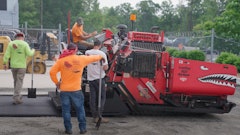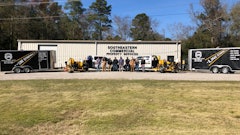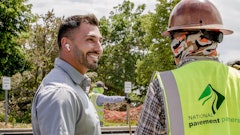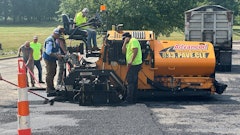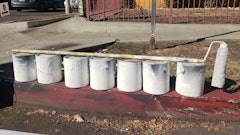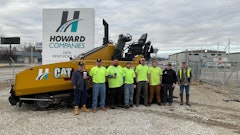Fausnight Stripe and Line has come a long way since president Phil Fausnight's brother started the company out of their mother's garage in 1981. At that time, Fausnight was still in high school and worked weekends striping parking lots with his brother. Over the years, Fausnight has helped the company grow from a two-man operation with a Kelly-Creswell striping machine and a used van to a company with nearly 50 employees, a warehouse, and more than 20 trucks, including long-line striper trucks.
The Longwood, FL, company offers striping on roadways, parking lots, and airfields, utilizing traffic paint, thermoplastic, pavement marking tapes, and reflective pavement markers. The company also installs wheel stops and parking bumpers and offers traffic signs, a market Fausnight predicts will grow and one he says fits well with striping.
Fausnight Stripe and Line's job sizes vary, from small parking lots to 15-mile-stretches of highway work. The jobs are spread out among commercial, residential, and municipality work, but about 60% of the company's business is in government road building projects. The road projects are typically highway reconstruction jobs, where the government decides to reconstruct or add lanes to a stretch of highway.
"We'll work as a subcontractor for the road building contractor," Fausnight says. "We'll do all the detour striping, final striping, and any removal of existing striping."
Fausnight says the state and federal road building projects are great to have because they are consistent, steady work often associated with fairly big contracts. But he notes that they do require in-depth management.
"There are many regulations that go with work on the federal and state levels that require a lot of paperwork on our part," he says. "With the U.S. Department of Labor, there's Equal Employment Opportunity paperwork that's required, safety and OSHA requirements — basically, it takes a lot of management to run these jobs. It's a big step up from doing small parking lot work."
Fausnight finds work on road projects through a bid service, which gives him information about what jobs are going out to bid. It also allows him to find out which contractors are bidding a job, so he can submit subcontractor bids to those contractors he'd like to work with.
Despite his company's focus on roadbuilding projects, Fausnight still works to serve his smaller clientele, and says his company is always looking for new services to offer customers. When it comes to expansion, Fausnight likes to see his company grow about 10% to 15% a year, a rate he says the company feels it can keep up with in terms of equipment purchase, work load, and keeping employees trained.
"We forecast our work and make sure we have enough men and equipment to meet our needs," he says. "The typical average life for much of our equipment is usually about seven years, so we find that if equipment is down too often, the downtime of the crew costs more than it would to sell that equipment off and replace it."
In order to keep employees current on new techniques and refreshed in old ones, Fausnight utilizes formal training programs, such as those by American Traffic Safety Services Association (ATSSA) and through the National Pavement Expo. Fausnight Stripe and Line also holds its own in-house training, both for safety and striping technique.
Despite struggling with issues many contractors must face, such as finding and keeping good employees and dealing with expanding regulations in the pavement maintenance industry, Fausnight sees an encouraging future in his market.
"I continue to see growth in the economy — it seems that roads always need to be built and always need to be maintained, and developments need to be built to keep up with growth in the area. I see great things to come, because the economy seems strong, and seems like it will continue to grow stronger."
